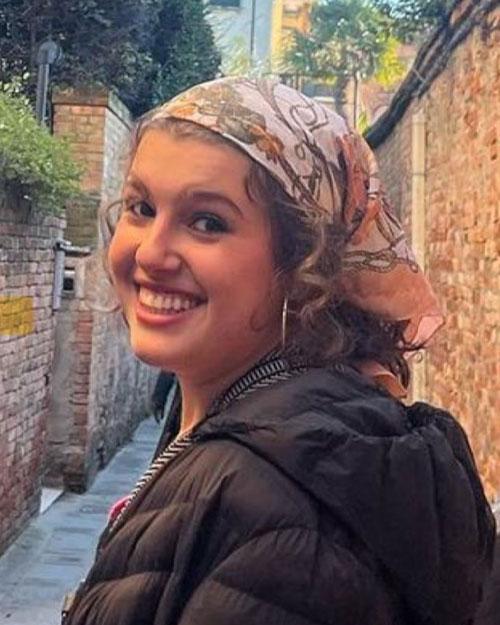Instructor Spotlight: Kathleen Landis

Tell us about yourself and what inspired you to teach this course
I have always been fascinated by people's lives and experiences from long ago and how much the world has changed in the intervening years. In studying history at Tufts, I have taken several fascinating courses that have illuminated the possibilities of historical research. My course was born out of my several historical interests and a desire to make historical research more accessible to first-years while also teaching them more about new research methods.
How do you define an archive and why do we need to think beyond it?
Like most historical researchers, I define the archive as both the physical manifestation of and the general collection of historic documents and artifacts that are available to both historians and often, the general public. Places like Tufts Archival Research Center (TARC), or on a larger scale, the Library of Congress, are great examples of historical archives. However, the archives often inadvertently reinforce existing inequalities because they have been shaped by the same societal forces that have oppressed large groups of people throughout time. Put simply, the majority of what is in the archive tells the history of those in power. As we have all become more cognizant of existing inequalities and want to revisit the histories of all people, it is impossible to create a full picture of minority histories using solely the archives. This problem has led to fascinating research and new methods of historical evidence that many historians use to uncover what has been forgotten and create a fuller and more diverse historical narrative.
In the digital age we live in, what is one way students can preserve their own history?
We are very lucky to live in a time where it is so easy to record and photograph what we are doing. Often photos can capture emotions and activities that illustrate a moment. I love scrapbooking and adding notes to photos about the context of what I was doing and using them to reflect on all my new experiences.
What do you hope that students will take away from your course?
Often when I tell people that I study history they remark that it must be hard to be optimistic about the field given recent controversies over education and United States history. I feel the opposite. My course and the new kinds of evidence we are exploring are so exciting and open the door to a more accurate and fuller history that everyone can see themselves in. I want my students to leave my course feeling that they are capable of engaging in research that contributes to our understanding of what has come before us and that there is a way of moving forward that does not simply reinforce inequalities of the past and instead addresses the inequities that persist in historical research.
What is something coming up in your course that you are excited about?
There have been so many wonderful surprises in my course so far. I am constantly impressed by the perspectives and outside knowledge my students bring to this course. For their final projects, each of my students will be able to research an untold historical topic of their choice and I cannot wait to see what they do.
Kathleen Landis (she/her) is from Summit, New Jersey. She is a History major with minors in both Spanish and Art History. She is a part of Tufts Tap, Ultimate Frisbee and TFL Comedy.